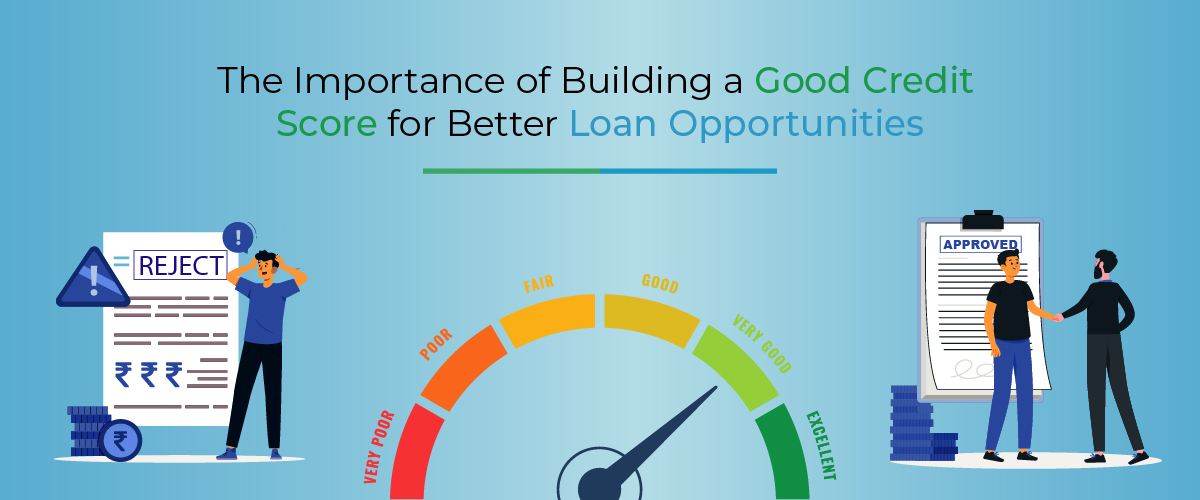Have you ever questioned why you still have trouble getting a vehicle loan when your friend or family member was accepted for one? The difference likely comes down to three simple digits: a credit score.
A credit score can either open doors to financial opportunities or become a stubborn roadblock in your journey toward significant life goals. But what exactly is it, and how can you build a credit score? Let’s break it down.
What is a Credit Score?
A credit score isn’t just a number—it’s a financial identity card created by credit bureaus that lenders use to determine your creditworthiness. The higher your credit score, the more likely you will be approved for loans and better interest rates.
The Reserve Bank of India governs four approved credit information providers in India: Highmark, Equifax, Experian, and Credit Information Bureau (India) Limited (CIBIL). The credit score scale ranges from 300, the lowest, to 900, the highest and most desirable.
According to recent data from CIBIL, a leading credit bureau in India, around 79% of loans approved by banks in the country are for individuals with a CIBIL score of 750 or above, indicating excellent credit.
How is it Calculated?
Although different credit models may arrive at a credit score for loans differently, they mostly pull data from credit reports that contain several data points with an emphasis on five areas:
- Payment history (35%)
Payments that are late or missed can drastically reduce your score on the credit score scale. For example, if you don’t pay your credit card bill for a month, your score can drop 50 to 100 points. This is a big no-no when you want to build a credit score.
- Credit utilization (30%)
This calculates the ratio of your credit utilization to your entire credit limit. Experts advise maintaining credit use below 30%. If you max out your cards, you’re alerting lenders that you heavily depend on credit, even if you consistently pay on time.
- Length of credit history (15%)
Closing old accounts can shorten your history and negatively impact your score. For example, if you close your first credit card account from 10 years ago, your average account age drops, potentially lowering your score.
- Credit mix (10%)
Various credit types—credit cards, car loans, and mortgages—show lenders you can handle diverse financial responsibilities. Relying solely on one type, however, may not optimize your score.
- New credit inquiries (10%)
Applying for multiple credit cards or loans in a short span can make you look desperate for credit. Each hard inquiry can knock a few points off your score, so space out your applications wisely.
Why Is Your Credit Score Your Financial Best Friend?
A good credit score isn’t just a badge of financial honor—it’s a practical tool for accessing better loan opportunities. Hence, if you build a credit score higher than good, it opens the door to the following:
- Higher Chances of Loan Approval—When lenders see a high credit score, they presume a lower chance of default, making it easier to get approved for loans, credit cards, or rentals.
- Lower Interest Rates—With a good credit score, you’re seen as trustworthy, qualifying you for lower interest rates. For instance, a borrower with a score of 790 might secure a home loan at 5%, while someone with 620 could be offered 8%, resulting in extra interest over time.
- Access to Larger Loan Amounts—Among all credit score loan benefits, this is useful for individuals needing a higher loan amount. With a good score, you can qualify for higher credit limits and larger loan amounts, giving you more financial flexibility.
- More negotiating power with lenders—With a good credit score for loans, almost every bank/lender will be keen to offer you a loan. If you improve your credit score, it allows you to negotiate better/more competitive interest rates, payment plans, and added benefits.
Building Your Credit Score: A Strategic Approach
Steps to improve credit scores require consistent effort and smart financial habits. Here’s your game plan to build a credit score:
- Pay Bills on Time
Pay all bills on time, including total payments for credit cards, EMIs, and utilities. Set up automatic payments or reminders to ensure you pay before all the due dates.
Pro tip: Avoid making minimum payments, which can attract interest rates. Instead, pay off the entire balance each month.
- Keep Credit Utilization Below 30%
One of the best ways to improve credit score is to keep your credit utilization low by either spending less or requesting credit limit increases. If your credit limit is Rs. 5 lakhs, keep your utilization below Rs. 1.5 lakhs.
- Keep Old Accounts Open
Don’t close old credit cards – they contribute to your credit history length.
- Limit New Credit Applications
One of the crucial steps to improve credit score is to apply for new credit only when necessary to avoid multiple hard inquiries.
- Monitor Your Credit Report
Check your credit report regularly for errors (they’re more common than you think), and dispute any inaccuracies promptly.
- Healthy Credit Mix
Have a variety of credit accounts, such as credit cards, loans, and mortgages—however, only take on credit that you can handle responsibly.
Benefits of a Good Credit Score Beyond Loans
- People with a good credit score are eligible for reduced premiums from several insurers.
- Except for better credit score loan benefits, you may be eligible for higher spending limits and pay less interest on credit cards.
- For positions involving financial responsibility, several employers check credit histories.
- You may get the best credit cards with low interest rates, perks, and cash back if you rank high on the credit score scale.
Take Control of Your Credit
When you build a credit score of good ranking, it assures you of the utmost financial aid and cash savings in the long run. It helps you make a more substantial base while learning the elements that could affect your credit score for loans or any other financial aid and practicing good credit habits.
So, remember, the process to improve credit score is a marathon, not a sprint. Start today—monitor your credit, pay bills on time, keep your utilization low, and watch those three significant digits grow along with your financial opportunities.



